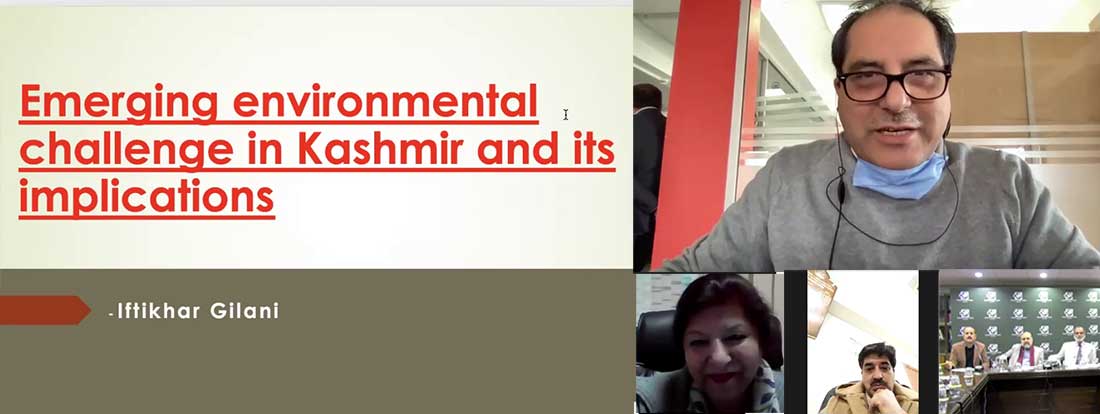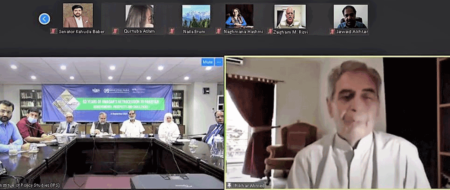‘Jammu and Kashmir: An Environmental Catastrophe in the Making and its Implications’
Rapidly receding glaciers within IoK, a growing concern for Pakistan and the region
Enhanced human intervention and a deliberate neglect by the Indian government is causing the glaciers in the Indian occupied region of Kashmir to recede fast. This environmental degradation could have dire consequences for the South Asian region, not least for Pakistan whose water resources depend chiefly on the rivers originating from the Himalayan range present within the Indian-held state.
The anomaly was pointed out by renowned UK-based journalist and author from Jammu and Kashmir Syed Iftikhar Gilani while addressing a seminar titled ‘Jammu and Kashmir: An Environmental Catastrophe in the Making and its Implications’. The session held on December 27, 2021 was presided over by Chairman IPS Khalid Rahman and participated by IPS’ Vice Chairman Ambassador (r) Syed Abrar Hussain and the Institute’s research faculty.
Addressing the session online via video link, Gilani revealed that most of the glaciers in the great Himalayan range – from Harmuk to Drungdrung, including Thajiwas, Kolahoi, Machoie, Kangrez, and Shafat – have significantly receded to around 4,000-5,000 m (13,123-16,404 ft) over the last 50 years.
He termed increased, unhindered human activity in the region and unchecked tourism being fostered by the Indian government to promote religious tourism a major reason behind such swift melting of the glaciers.
The speaker opined that connecting religious tourism with politics has brought havoc in the Pahalgam region of Kashmir, which serves as the base camp for the Amarnath shrine. As many as 20,000-25,000 pilgrims were allowed to visit the Amarnath cave per day, he shared, which lies in the ecologically fragile area of Pahalgam and Sonmarg. He warned that this ecological intrusion is posing serious threats for the environment retention of the area.
Gilani rued that while the Indian government has taken quite a few steps to protect gigantic glaciers present within its legitimate area, it is sidestepping similar measures to protect the glaciers in Kashmir which feed the Indus River system of Pakistan.
He further added that it is only the glaciers, but also the forest cover in Kashmir that is facing the brunt of such neglect. Having receded from 37% to 11%, the woodlands in the occupied region are another important ecological component that demand immediate attention.
The participants of the meeting expressed grave concerns over the revelations, urging Pakistan to make environmental disaster in the Indian occupied region a part of its official narrative on Kashmir in a bid to garner the world’s attention to the looming crisis that will not only have consequences for the South Asian countries, but well beyond that.












